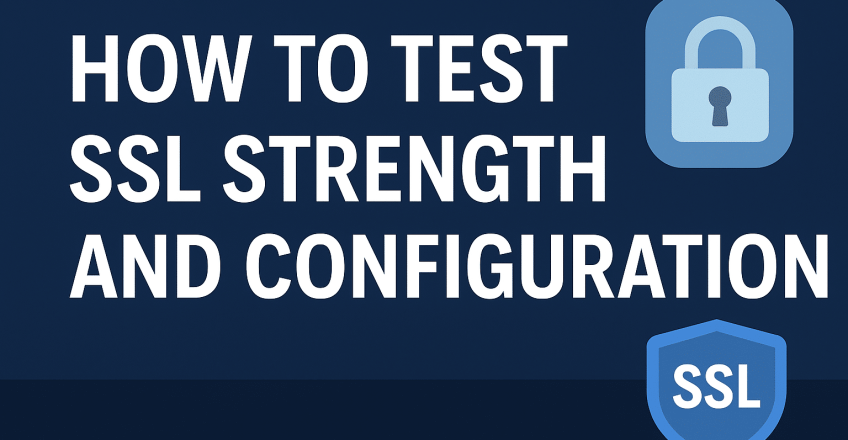
Securing your website with an SSL certificate is an essential step to protect user data and gain visitor trust. But installing SSL is only the first step—you also need to test your SSL strength and configuration to ensure it meets the latest security standards.
In this guide, we’ll walk you through how to check your SSL configuration, test its encryption strength, and maintain an A+ rating for top security.
Why SSL Testing Matters
Even with a valid SSL certificate, improper configuration can leave your site vulnerable to:
-
Weak encryption protocols
-
Expired or misconfigured certificates
-
Unsupported ciphers
-
Mixed content issues
A properly tested SSL ensures:
-
Full data encryption between your website and visitors.
-
Higher SEO rankings, as search engines favor HTTPS.
-
Better browser trust with a secure padlock icon.
Tools to Test SSL Strength and Configuration
Here are some free online tools you can use:
1. SSL Labs Test (Qualys)
SSL Labs is the industry standard for testing SSL certificates.
-
Enter your domain and click “Submit”.
-
The test will analyze your certificate, protocol support, and overall grade (A to F).
-
Aim for an A or A+ rating.
2. Why No Padlock
Why No Padlock checks for mixed content and other SSL-related errors that can trigger browser warnings.
3. SSL Checker
SSL Checker quickly verifies whether your SSL is installed correctly and shows details like expiration date and chain issues.
4. OpenSSL Command
For developers or VPS users, you can use:
This allows you to manually inspect certificates and supported protocols.
Steps to Test SSL in cPanel (Sternhost Example)
If you host your website with Sternhost, testing your SSL configuration is easy:
-
Log in to cPanel.
-
Navigate to SSL/TLS Status.
-
Check certificate details, renewal status, and auto-renew options.
-
Use integrated tools like Let’s Encrypt SSL to verify security compliance.
Tips to Strengthen SSL Configuration
-
Always enable HTTPS redirect in
.htaccess. -
Disable older protocols (TLS 1.0/1.1).
-
Use 2048-bit or higher encryption keys.
-
Install a trusted CA certificate (e.g., Let’s Encrypt, Sectigo).
-
Enable HSTS (HTTP Strict Transport Security) for maximum browser trust.
Common SSL Issues and Fixes
| Issue | Cause | Fix |
|---|---|---|
| Mixed content warnings | Loading non-HTTPS images/scripts | Update all URLs to HTTPS |
| Weak cipher suites | Outdated server configuration | Update OpenSSL & enable stronger ciphers |
| Expired SSL certificate | Missed renewal | Enable auto-renew in Sternhost client portal |


